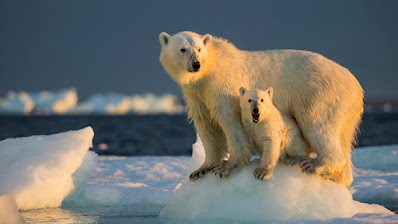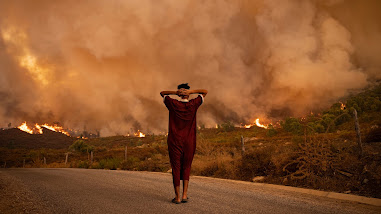
While I don’t have direct access to the content of specific articles or publications like the one you mentioned from WWF-UK, I can certainly address common myths about climate change that have been discussed widely in the scientific community. Here are 10 myths often encountered
10 Myths About Climate Change WWF UK In The World Wide
Myth: Climate Change is Natural: While climate change has occurred naturally throughout Earth’s history, the current rapid warming trend is primarily caused by human activities, such as burning fossil fuels and deforestation.
Myth: It’s Just a Natural Cycle: While there have been natural climate cycles in the past, the current rate of change far exceeds anything seen in the geological record, indicating a significant human influence.
Myth: Climate Models Are Unreliable: While climate models have uncertainties, they are based on well-established physical principles and have proven to be valuable tools for understanding past trends and making future projections.
Myth: Climate Change is Good for Some Regions: While certain regions may temporarily benefit from warmer temperatures or increased CO2 levels, the overall impacts of climate change, including extreme weather events, sea-level rise, and ecosystem disruptions, pose significant risks to human societies and biodiversity globally.
Myth: It’s Too Late to Take Action: While the impacts of climate change are already being felt, significant reductions in greenhouse gas emissions and adaptation measures can still help mitigate future risks and build resilience.
Myth: CO2 Is Harmless: While carbon dioxide (CO2) is a natural component of the atmosphere, excessive CO2 emissions from human activities contribute to global warming and ocean acidification, with widespread consequences for ecosystems and human well-being.
Myth: Renewable Energy is Inefficient: Renewable energy sources like wind, solar, and hydroelectric power have become increasingly competitive and are essential for reducing greenhouse gas emissions and transitioning to a sustainable energy system.
Myth: Climate Change Is Only About Temperature: While rising temperatures are a significant aspect of climate change, it also involves shifts in precipitation patterns, melting ice caps, ocean acidification, and other complex phenomena with wide-ranging impacts.
Myth: Climate Change is a Hoax: The overwhelming scientific consensus is that climate change is real, primarily caused by human activities, and poses significant risks to global ecosystems and societies. Claims denying climate change are not supported by scientific evidence.
Myth: Addressing Climate Change Will Hurt the Economy: Transitioning to a low-carbon economy may involve initial costs, but the long-term benefits of reducing greenhouse gas emissions, improving energy efficiency, and investing in renewable energy technologies can lead to economic growth, job creation, and improved public health.
These are just a few examples of common myths about climate change, and it’s crucial to rely on credible scientific information and expert analysis when discussing this complex issue.









